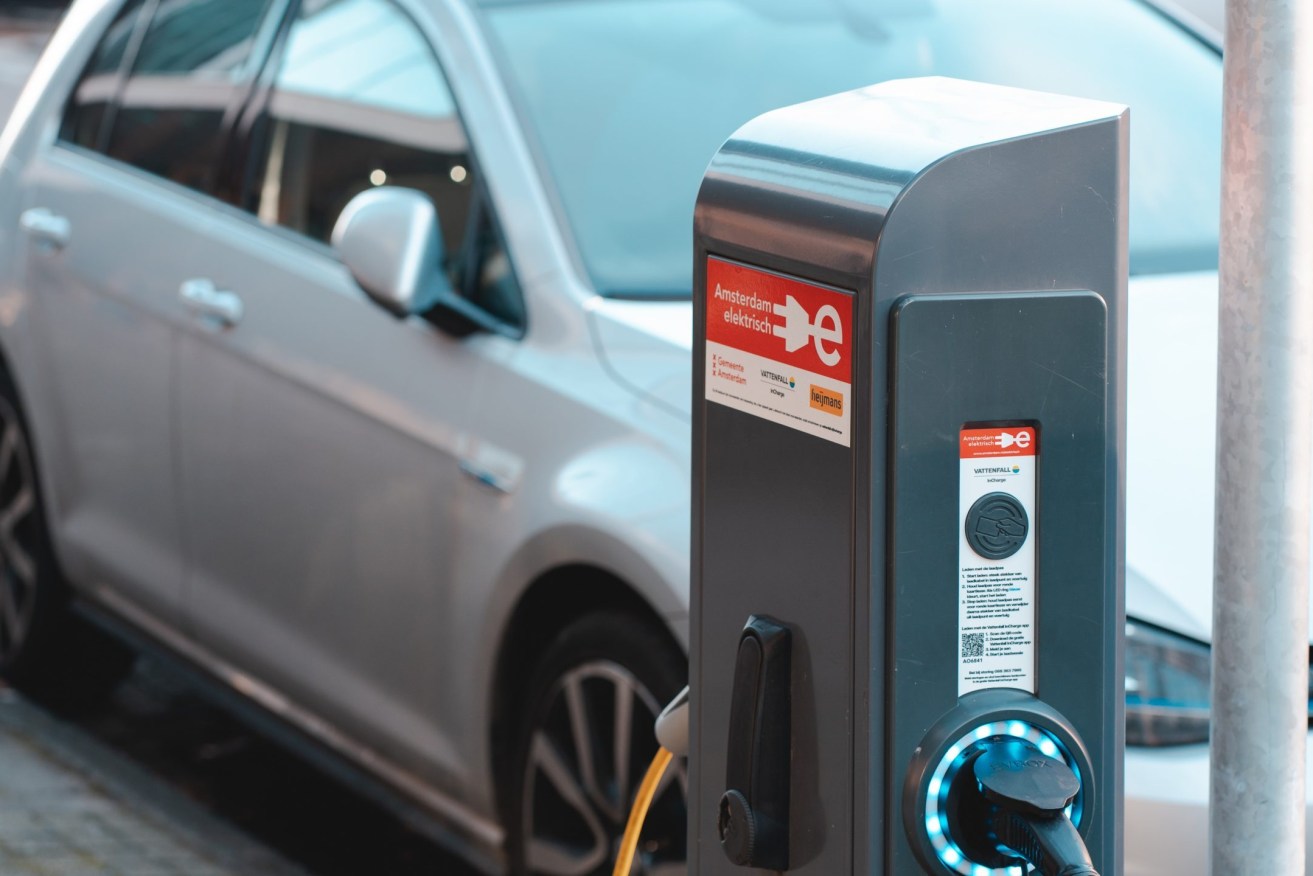Zap to it: Queensland offers $3000 electric vehicle subsidy
Queenslanders will be offered a $3000 subsidy if they buy an electric vehicle with a purchase price of less than $58,000 over the next three years.

Annastacia Palaszczuk said the government would also commit $10 million to jointly funding charging stations with local governments and companies. (Image: Unsplash)
Premier Annastacia Palaszczuk said the policy, which comes at a time of soaring petrol prices, would help more people shield their wallets from future petrol price hikes and reduce the carbon emissions contributing to climate change.
The scheme will cost taxpayers $15 million a year.
“While we cannot control the global events that have led to this price hike there is something we can do,” she told parliament on Wednesday.
“We are going to make the cost of buying electric cars just that little bit cheaper.”
“This will help Queenslanders waiting for electric vehicles to become more accessible and affordable so they can make the switch,” she said in a statement.
“This announcement is a key part of our Zero Emission Vehicle Strategy: the goal is to reduce our emissions and reduce the impact of climate change.”
The $58,000 cap on the purchase price means the subsidy will only be available for buyers of six models: Hyundai’s Ioniq and Kona model, Nissan’s Leaf, MG’s ZS Essence and BYD’s new Atto models.
Ms Palaszczuk said the government would also commit $10 million to jointly funding charging stations with local governments and companies.
The Sunshine State has long had one of the stingiest EV purchase incentives of any state or territory, only offering buyers registration and stamp duty savings of about $350 over five years.
NSW, South Australia and Victoria already offer $3000 rebates for EV purchases.
Advocacy group Solar Citizens welcomed the subsidy because it would slash emissions and reduce the cost of living amid high fuel prices.
“The $3000 rebate is a practical step to reduce the cost of electric vehicles and puts Queensland on the same page as states like NSW and South Australia that are encouraging the uptake of cleaner cars,” strategist Stephanie Gray said.
However, she said the high purchase prices of many EV models remained a barrier for many people, so more government support and incentives were needed.
She said incentives for auto makers to build EVs locally and commitments to electric public transport would help.
“There’s plenty more that both states and the federal government can do to slash the upfront cost of cleaner electric cars so that Australians can cash in on the fuel savings,” Ms Gray said.
A recent Australia Institute poll of 2600 Australians showed 71 per cent support of subsidies for EV purchases, while 74 per cent said the government should pay for a network of charging stations.
The Climate of the Nation poll found 64 per cent of respondents want all new cars sold in Australia to be required to be zero emissions by 2035.
EV subsidies: How states compare
Queensland:
* $3000 rebates for the first 15,000 EVs sold for less than $58,000
* $11 million for new charging station infrastructure
* Stamp duty and registration savings of approximately $350 over five years.
NSW:
* $3000 rebates for the first 25,000 EVs sold for less than $68,750
* Stamp duty waived for EVs less than $78,000
* Road user charges as sales reach 30 per cent or from 2027
* EV sales target of 52 per cent by 2030
South Australia:
* $3000 rebates for the first 7000 EVs sold for under $68,750
* Road user charges as sales reach 30 per cent or from 2027
* Three years registration exemption for EVs sold for less than $78,000
* Aiming for all passenger vehicle sales to be electric by 2035
Victoria:
* Rebates of $3000 as part of $46 million subsidy program for 20,000 electric vehicles
* $100 registration discount for EV passenger vehicles and exemption from “luxury vehicle” duty
* EV road user charge of 2.5c/km
* Target of 50 per cent of new light car sales to be zero emissions by 2030
Western Australia:
* $21 million for three long-distance charging networks from Perth to Kununurra, Esperance and Kalgoorlie
* Target of 25 per cent of new light private car sales and small and medium government SUVs to be zero emissions by 2026
ACT:
* Free EV registration for two years, stamp duty waived on new vehicles
* Interest free loans up to $15,000 for households and not-for-profits to buy zero emissions vehicles.
Tasmania:
* Two-year waiver on EV purchases and on registration for car rental and coach firms
* $1000 grant to EV owners who rent their cars out through car share programs
Northern Territory:
* Registration reduced by between $632.75 and $1272 for five years
* Stamp duty reduced by $1500 for five years












